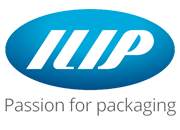Legal Action against EU’s Implementing Regulation 2020/2151 – SUPD Art 7
On 11 March 2021, seven plastic packaging manufacturers, united via their national trade associations, brought an action for annulment before the EU General Court under Article 263 TFEU against the new marking specifications for single-use beverage cups wholly or partially made from plastic as defined in the Commission Implementing Regulation 2020/2151 (“IR 2020/2151”) of 17 December 2020. The principle of this marking requirement is derived from Article 7 of the Single-Use Plastic Directive (EU) 2019/904 (“SUPD”).
The co-applicants, PACCOR, Flo, Dopla, ILIP, Aristea, Dart, and Intraplas, are fully committed to the objectives of the European Green Deal and the Circular Economy Policy and have in this respect adopted various sustainability initiatives. As an industry, they aim to achieve a high level of recycled materials in their beverage cups and recycling of their beverage cups after use. It follows that the beverage cups and packaging thereof are already placed on the market in the EU with symbols and markings used widely by the packaging and food contact materials industry, to allow and encourage proper disposal, sorting and recycling thereof.
The co-applicants are of the view that the marking specifications for beverage cups now established by the Commission in the IR 2020/2151 are unnecessary and unsuitable to achieve the aim of the SUPD, which is to prevent and reduce the impact of beverage cups on the environment, in particular the aquatic environment, due to littering by consumers, as well as to promote the transition to a circular economy.
In fact, despite the Commission’s analysis that plastic items represent a significant volume of the marine littering, beverage cups have been found to be only 35th on the list of items most widely found on beaches. In this respect the co-applicants also observe that the impact assessment that was made by the EU legislator prior to the adoption of the SUPD, and notably Article 7 thereof, does not address beverage cups.
Moreover, the additional markings adopted by the Commission for beverage cups (pictograms and information phrases about the presence of plastic) are likely to mislead consumers about the correct action to perform after use of the cup. Hence, they risk being counter-productive.
The co-applicants further consider that the required written indications “Made of Plastics” or “Plastic in Product” in the respective official languages of the Member State where a beverage cup is placed on the market, fail to take into account the free movement of products and consumers on the internal market. As a result, the product markings are likely to be in the language of the initial purchaser, and not that of the consumer who will ultimately be using the cup and be responsible for disposing it responsibly. Consequently, the new markings are likely to fail in achieving the SUPD’s objective of “informing consumers”. The markings could also easily mislead the consumer in choosing the proper way of disposing of the cups after use, especially with regard to beverage cups made from bioplastics or coated paper. This is considered potentially very harmful for the recycling streams in place and ultimately for the environment. The marking requirement paradoxically fails to achieve the purposes of the SUPD and those of the European Green Deal and the Circular Economy Policy. Furthermore, the new marking required is disproportionate for beverage cups made entirely of plastic, since consumers are already aware that they drink from a plastic cup. The Commission failed to have recourse to the least onerous option even though it had a clear choice regarding alternative measures that could have been adopted.
What is the objective?
The aim of the action is to establish the unlawfulness of the marking requirements set forth in the IR 2020/2151 for beverage cups, and the annulment thereof. The co-applicants seek to push the Commission to reconsider the markings now imposed for beverage cups in order to have justified and appropriate other, better, measures in place, and actions taken, to effectively encourage the recycling and recallability of beverage cups partially and wholly made of plastic and to reduce marine littering of single use plastic products. The co-applicants consider that the Commission should promote already existing sectoral approaches that prove effective, promote the right behavioural attitude of consumers and provide a sound legal environment for and with manufacturers, traders, recyclers all along the value-chain, and work together towards the circularity of single use products that are made wholly or partially out of plastics. In this respect the co-applicants also consider that Article 7 SUPD should be reconsidered, because beverage cups are arguably unlawfully added to the products made subject to marking obligations as defined therein.
The annulment action does not have suspensive effect, so the marking obligations must still be applied from 3 July 2021 until the final judgment. Irrespective of the option to seek interim relief in this respect, the aim of the seven plastic packaging manufacturers is notably also to make other players in the value chain, such as retailers, brand owners, foodservice companies, aware of the impact that the markings can have also on their operations. Once the formal announcement of the present action for annulment is published in the EU’s Official Journal, interested third parties can apply to the EU General Court to be admitted to the proceedings as interveners. To do so, they must show a “legitimate interest” in the outcome of the proceedings.
A judgment from the EU General Court is expected in approximately 2 years’ time.
